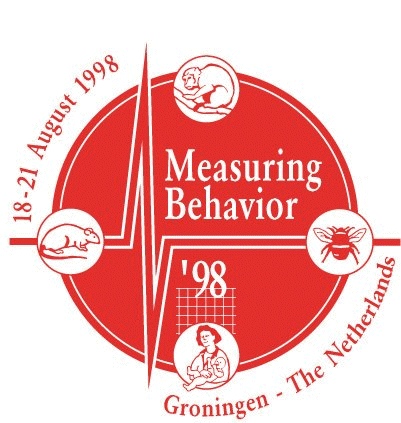Testing individual cognitive performance of group-housed long-tailed macaques using touch-screen displays
J.A.R.A.M. van Hooff and H.C. Veenema
Ethology and Socio-ecology, Department of Comparative Physiology, Utrecht University, Utrecht, The Netherlands
The performance of monkeys in learning tasks is generally measured in monkeys that are housed solitarily or in very small groups. Housed in this way, the animals can be handled easily and are considered to have a standardized environment. However, the generally poor housing conditions may affect normal development of cognitive abilities and lead to an increased responsiveness to mildly stressful events. By housing monkeys in larger social groups, with a social structure that resembles the natural situation, these problems can be overcome. A second important advantage of testing group-housed monkeys is that in this way the influence of consistent and long-lasting differences in individual levels of stress can be investigated. In stable groups of macaques the social position is the main determinant of stress in the animals, and the social position of females is generally stable for their entire lives. Knowledge of this position can be used as an additional variable in relation to the performance of the animal. As yet no researchers have been able to train a sufficient number of macaques living under such conditions to perform a learning task without invoking additional stress. In this study we investigated the possibility to train female long-tailed macaques to voluntarily perform a computerized learning task. We developed a procedure in which twelve adult female long-tailed macaques could enter a small cage in which they could be isolated from their group mates for the duration of a test (10-20 min). As the animals were test-naive, and not food-deprived, we investigated their ability and motivation to perform on two different learning tasks. All the animals learned to enter the test cage and to press on a touch-screen for an incentive. Initially, most of the animals had great difficulty in performing a delayed non-matching to sample test. Performance improved only slightly with adjustments to the discriminability of the pictures. On a subsequent discrimination reversal task, all animals succeeded in solving the task. The inability of the animals to solve the DNMS-task may be due to the difficulty of the task, the fact that the animals were inexperienced, or the rewarding scheme used. Probably, the animals first need extensive experience with testing equipment and procedures, before they can be given a difficult learning task. The conclusion of this study, i.e. that socially housed monkeys can be used for testing individual cognitive abilities, is relevant for researchers who are interested in the relation between social influences on cognitive performance, and may promote the welfare of the animals under study.

Paper presented at Measuring Behavior '98, 2nd International Conference on Methods and Techniques in Behavioral Research, 18-21 August 1998, Groningen, The Netherlands